Microsoft today unveiled faster, more powerful versions of its Surface tablet computer in an effort to boost poor sales of its flagship hardware product and mount a stronger challenge against Apple's iPad.
The Surface is key to Microsoft's plan to reinvent itself as a devices and services company, but the revamp comes less than a year after it brought out its own computers for the first time and failed to put a dent in the market.
It has racked up only US$853 million in sales while generating a US$900 million charge for unsold inventory.
At an event in New York, Microsoft unveiled two new machines and a range of accessories promising faster processing, better battery life and more apps.
The new Surface 2, which runs on a low-power chip designed by ARM starts at US$449 for the 32 GB version. That is slightly less than Apple's latest wifi-only 32 GB iPad, which costs US $599.
In Australia, the Surface 2 starts at $529 and a 32 GB iPad, Wi-Fi only, costs $649.
The new Surface Pro 2, which runs on an Intel chip and is aimed more at the lightweight laptop market, starts at US$899 for the 64 GB version, not including keyboard. Apple's cheapest 128 GB MacBook Air costs US$999.
Australian pricing for the cheapest Surface Pro 2 is $1019 whereas an 11-inch Apple MacBook Air with 128GB storage runs to $1099.
Keyboard covers for the Surface tablets cost $139.99 and $149.99 respectively for the Touch Cover 2 and Type Cover 2 respectively. Next year, Microsoft will launch a new Power Cover keyboard that features a built in battery to extend usage time for the Surface tablets.
Microsoft also showed off a docking station with speakers for the Intel-based Surfaces, so that they can be hooked up to a desktop monitor, connect to Ethernet wired networks and USB devices, also available next year.
Initial analyst reaction was tepid.
"I don't see much incentive for people to buy these devices. Yes, they are cheaper than the iPads, but is that enough reason?" said Jack Gold, a technology analyst at J. Gold Associates.
"It seems like Microsoft is just maintaining the traditional PC mantra - keep upgrading the chip and hardware a little bit every year at a slightly lower price. I think they needed to do something that was innovative beyond the first generation, and I don't see that in these devices."
Microsoft shares were steady at U$32.82 on Nasdaq, while Apple shares rose 4 percent after reporting strong sales of its new iPhone 5s and 5c models and offering a more optimistic financial forecast.
As an added incentive, Microsoft is taking advantage of its other products, offering customers free Skype calling to landlines in more than 60 countries for one year and 200 GB of free storage for two years on SkyDrive, its online 'cloud' storage product that competes with Google Drive and Dropbox.
The Surface 2 comes preloaded with a stripped-down version of Office, including Outlook email. Surface Pro 2 can run the full, standard version of Office, but the software must be bought separately.
The hugely popular Office suite is the Surface's one unique selling point over Apple, as Microsoft has not released full, custom-designed Office apps for the iPad.
"What should be the 'killer app' is Microsoft Office," said Avi Greengart, an analyst at Current Analysis, who was more optimistic about the new Surface products. "The Surface Pro has a place as an ultra-portable notebook replacement. If you value the touch screen form factor at that price point, it's a reasonable option.".
"This is about Microsoft making sure people understand Microsoft is here and will be part of the future of computing," said Carolina Milanesi, an analyst at Gartner. "But I think the competition is still very tough."
The new machines will be available for sale online, in Microsoft stores and at a few third-party retailers in the United States and most other major markets, except Japan, on October 22. It will be available in China in early November.
Australian pre-orders for the new Surface 2 tablets will start being taken at 10pm AEST on September 24, via Microsoftstore.com, JB Hi-Fi and Harvey Norman.
(Reporting by Sinead Carew in New York and Bill Rigby in Seattle; Editing by John Wallace, Jeffrey Benkoe and Tim Dobbyn)

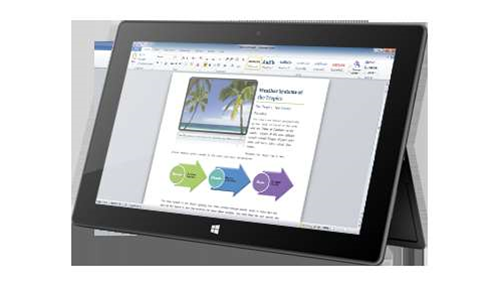
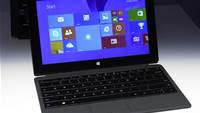
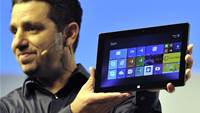
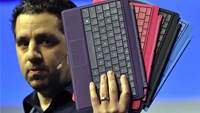
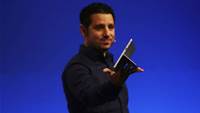




_(28).jpg&h=140&w=231&c=1&s=0)


_(23).jpg&h=140&w=231&c=1&s=0)





 iTnews Benchmark Awards 2026
iTnews Benchmark Awards 2026
 iTnews Executive Retreat - Security Leaders Edition
iTnews Executive Retreat - Security Leaders Edition
 iTnews Cloud Covered Breakfast Summit
iTnews Cloud Covered Breakfast Summit
 The 2026 iAwards
The 2026 iAwards












_(1).jpg&h=140&w=231&c=1&s=0)



